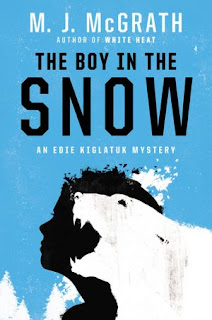C. Joseph Genetin-Pilawa
C. Joseph Genetin-Pilawa is assistant professor of history at Illinois College.
His new book is Crooked Paths to Allotment: The Fight over Federal Indian Policy after the Civil War.
From his Q & A at the publisher's website:
How did you arrive at this research project?Learn more about Crooked Paths to Allotment at the University of North Carolina Press website.
Originally, I imagined writing a book that focused solely on the National Indian Defense Association and its efforts in the 1880s to block the passage of forced allotment legislation. I became fascinated with Thomas and Cora Bland, the founders of the organization, andtheir campaign against the “Friends of the Indian,” a story that had been glossed over in the existing literature.
As these things go, however, the questions I was asking encouraged me to move backwards chronologically. Where did the Blands’ radicalism come from? Were there other individuals working within federal governance that actively questioned the trajectory, pace, and goals of the policies directed at Native communities, and offered viable alternatives? If so, what could we learn from their stories? This led me to ask similar questions of Ely Parker, a Tonawanda Seneca condoled chief and the first Indigenous commissioner of Indian Affairs, and his efforts to shape federal policy in the years surrounding the Civil War.
What inspired you to center your research on Ely Parker and Thomas Bland over other individuals?
There are several reasons why I find these individuals to be so compelling. I discussed the Blands above, but Parker’s life was so immensely interesting as well. He had many careers (interpreter for Seneca diplomats, condoled chief, engineer, military bureaucrat, policymaker, clerk). He lived and studied with other Haudenosaunee people in Ontario, worked on the Erie Canal, studied law in western New York, oversaw the building of customs houses and other federal buildings in Iowa, Illinois, Michigan, and Virginia, fought in the Civil War, lived in Washington, D.C. at several different moments and then later in New York City, working for the NYPD and spending time with Jacob Riis.
Parker and Bland were also controversial figures—even their historical legacies are contested. They...[read on]
The Page 99 Test: Crooked Paths to Allotment.
--Marshal Zeringue





























